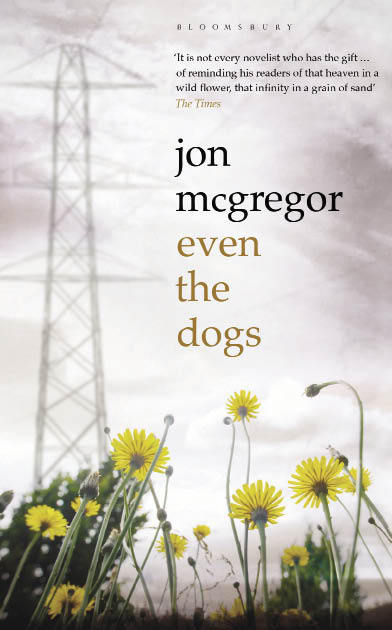The title of Jon McGregor’s third novel derives from an anecdote told by one of the many vivid, dispossessed characters whose voices burst from its pages: Steve is a homeless ex-soldier who agrees to help deliver a lorry-load of aid to a Bosnian town, but is turned back on the grounds that ‘even the dogs’ there are dead.
The title of Jon McGregor’s third novel derives from an anecdote told by one of the many vivid, dispossessed characters whose voices burst from its pages: Steve is a homeless ex-soldier who agrees to help deliver a lorry-load of aid to a Bosnian town, but is turned back on the grounds that ‘even the dogs’ there are dead. The words also recall the gospel of Matthew, where even the dogs eat the crumbs that fall from their masters’ table — an apt echo, since this is a novel that explores the life-defining dependencies of those on the margins of society, and the ensuing guilt when co-dependency is neglected.
It is late December, and the body of Robert Radcliffe lies undiscovered in his squalid flat for days before the door is finally kicked in. The circumstances are particularly sad because, in the years that he has been drinking away since his wife and daughter left him, Robert has been a benevolent force in the lives of a whole ‘scene’ of the homeless and the addicted — giving them shelter and a place to get high, often in exchange for errands of food. But this Christmas he was forgotten, and it was the end of him.
The narrative that follows is splintered, switching between the individual voices of Robert’s friends, and a first person plural voice that seems to represent the shapeless, anonymous mass of all of them — a collective, culpable ‘we’, picking over the man’s life and death. ‘We’ range about in space and time, from one perspective to another, but (perhaps a little too conveniently) the one viewpoint to which we don’t seem to have access is Robert’s immediately before he died. This establishes a tone of inquiry: who is to blame for what has happened, and could more have been done to prevent it?
We follow the progress of Robert’s corpse as his death is processed, through the morgue, the coroner’s court and finally the crematorium. We also track back through time to the days when his family was intact, and observe its collapse (including his daughter’s return home and own subsequent descent into addiction). Time speeds up and slows down. Fine set pieces are extracted from different individuals: at one point, for example, the action shifts to Afghanistan, and the journey home of a wounded soldier who ends up on the streets is described in tandem with the journey of heroin from poppy to end user.
A compelling and skillfully rendered picture emerges not just of Robert’s life, but of the lives of those who knew him: lives corroded by mental illness and scarred by war; lives that are hostage to the cycle of acquiring and consuming heroin, here shown to be refuge as much as tyrant (one of the many admirable characteristics of this novel is that it is never preachy); lives treated with far less respect and care by society than the deaths that follow them.
Even the Dogs chronicles the repetitiousness of addiction and the anonymity of homelessness. Its characters are stripped of the luxuries of linear narrative and distinct identity as well as more obvious ones, such as food and shelter. The broken voices that narrate the story bring about a crafted, sustained marriage of content and form, as the bleak dramas of the street play out in all their panic, chaos and tenderness.
Heliopolis by James Scudamore is published by Vintage at £7.99.





Comments